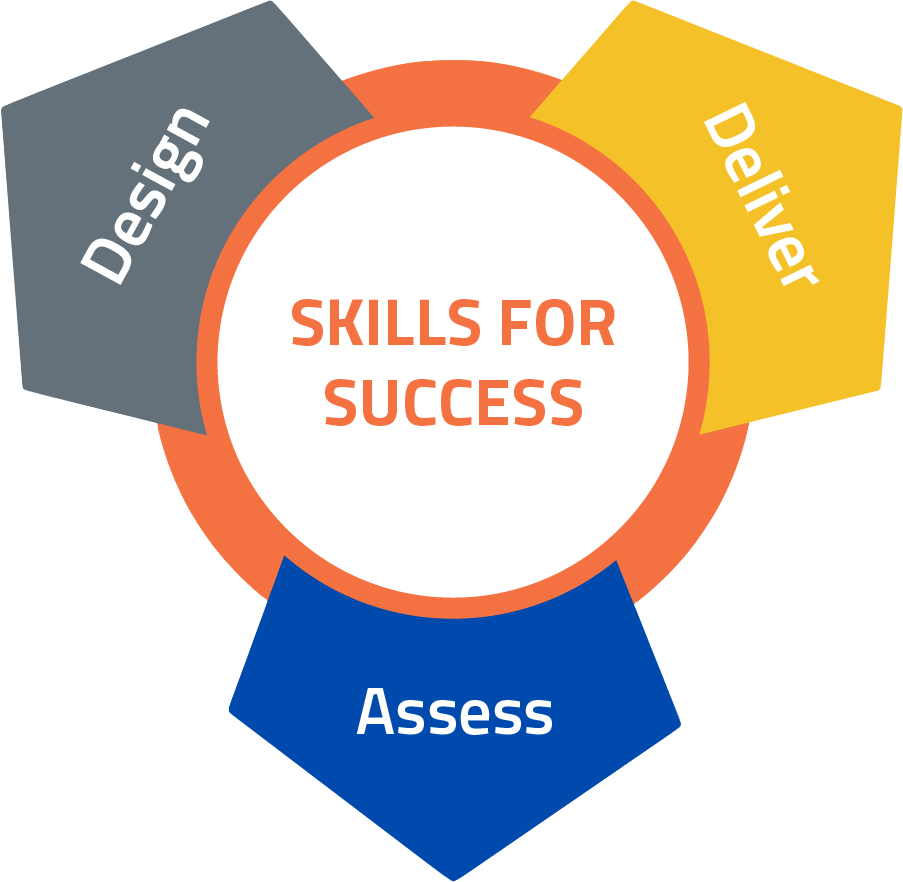Les compétences numériques ont pour but d’aider les participants à se servir de la technologie pour trouver, gérer, traiter, créer et partager des renseignements et du contenu. Les compétences numériques permettent aux participants de rester au fait des exigences actuelles en matière de travail et de formation et des demandes de la vie quotidienne.
Les liens suivants comprennent des données de recherche et des données probantes qui viennent soutenir le principe de l’enseignement de compétences numériques.
Ressource en français
- SRSA. 2021. Rapport de recherche en appui au lancement de « Compétences pour réussir » : Structure, données probantes et recommandations. Rapport final. https://www.srdc.org/media/553149/sfs-srdc-final-report-fr.pdf
Ressources en anglais
- Chinien, C., & Boutin, F. (2011). Defining Essential Digital Skills in the Canadian Workplace: Final Report. Human Resources and Skills Development Canada. http://en.copian.ca/library/research/digi_es_can_workplace/digi_es_can_workplace.pdf
- Delfino, M., Ferraris, M., Persico, D., & Pozzi, F. (2008). An approach to digital literacy for adults: The EuNIC proposal. In M. Kendall & B. Samways (Eds.), Learning to Live in the Knowledge Society (pp. 3-10). Springer US. https://doi.org/10.1007/978-0-387-09729-9_1 (login required).
- Hamalainen, R., Nissinen, K., Mannonen, J., Lämsä, J., Leino, K., & Taajamo, M. (2021). Understanding teaching professionals’ digital competence: What do PIAAC and TALIS reveal about technology-related skills, attitudes, and knowledge? Computers in Human Behavior, 117, 106672. https://doi.org/10.1016/j.chb.2020.106672 (login required).
- Jimoyiannis, A., & Gravani, M. (2010). Digital Literacy in a Lifelong Learning Programme for Adults: Educators’ Experiences and Perceptions on Teaching Practices. International Journal of Digital Literacy and Digital Competence (IJDLDC), 1(1), 40-60. https://doi.org/10.4018/jdldc.2010101903 (login required).
- Jimoyiannis, A., & Gravani, M. (2011). Exploring Adult Digital Literacy Using Learners’ and Educators’ Perceptions and Experiences: The Case of the Second Chance Schools in Greece. Journal of Educational Technology & Society, 14(1), 217-227.
- Moss, M. (2021). Effective practice in teaching essential digital skills – an account of a rapid literature review. The Education and Training Foundation. https://www.et-foundation.co.uk/edtech/effective-practice-in-teaching-essential-digital-skills-an-account-of-a-rapid-literature-review/
- Pendell, K., Withers, E., Castek, J., & Reder, S. (2013). Tutor-facilitated Adult Digital Literacy Learning: Insights from a Case Study. Internet Reference Services Quarterly, 18(2), 105-125. https://doi.org/10.1080/10875301.2013.800013 (login required).
- SRDC. (2021). Research Report to Support the Launch of Skills for Success: Structure, Evidence and Recommendations. Final draft report.
- Vanek, J. B. (2017). Using the PIAAC Framework for Problem Solving in Technology-Rich Environments to Guide Instruction: An Introduction for Adult Educators. https://static1.squarespace.com/static/51bb74b8e4b0139570ddf020/t/589a3d3c1e5b6cd7b42cddcb/1486503229769/PSTRE_Guide_Vanek_2017.pdf
- De Boer, E., Luse, A., Mangla, R., & Trehan, K. (2020). Digital collaboration for a connected manufacturing workforce. McKinsey Global Institute. https://www.mckinsey.com/business-functions/operations/our-insights/digital-collaboration-for-a-connected-manufacturing-workforce
Recherche sur l’enseignement des compétences numériques
